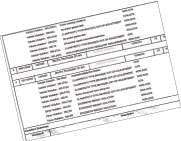FMCSA’s driver screening program proves to be a valuable tool for recruiters
On May 25, the Federal Motor Carrier Safety Administration paused to celebrate. One year to the day earlier, the agency opened the doors to its Pre-Employment Screening Program, allowing carriers and individual drivers to view commercial driver safety information records. For $10 per record, the Congress-mandated PSP now allows quick access to five years worth of crash data and three years of roadside inspection data – including serious safety violations in unsafe driving, hours of service, controlled substances/alcohol and valid medical qualifications – from FMCSA’s Motor Carrier Management Information System (MCMIS). Prior to that date, the information was available through less-than-speedy Freedom of Information Act and Privacy Act requests. In February, the agency added data to the PSP, including co-driver safety records and post-crash violations, and now shows the date drivers’ safety records are updated.
Judging by the number of driver information requests, PSP’s first year was a big success.
“Carriers welcome PSP as an essential tool for making informed hiring decisions that lead to safer drivers on the roads,” says FMCSA Administrator Anne Ferro. “We know that the majority of our nation’s carriers and drivers strive to operate as safely as possible. PSP makes their jobs a lot easier.”
Judging by the number of driver information requests, PSP’s first year was a big success. During that time, more than 380,000 orders were placed for driver safety record information through the system. In short order, PSP became a game changer in the way many carriers screen potential driver hires and owner-operator lessees.

With written consent from a driver candidate, fleets can use Pre-Employment Screening Program data in their hiring decision process to see five years worth of crash data and three years worth of roadside inspection data.
Carriers that order PSP reports today typically do so as a final clearing tool for driver candidates. And since last December when FMCSA’s Compliance Safety Accountability program took effect, the importance of using PSP to screen driver candidates has taken on added importance as a driver’s past performance is indicative of future behavior. But with so much driver history data now available, carriers now have to determine where to draw the line on a driver candidate’s previous violations.
While carriers looking to fill empty seats in light of the driver shortage may not have the luxury of taking a hard stand on what number of violations determines a candidate’s eligibility, PSP does provide them with the ability to better manage risky hires before they come onboard to help fleets reduce their CSA exposure. For example, driver candidates with past hours-of-service violations might be required to use electronic onboard recorders as a condition of employment. Others with a pattern of violations in specific categories may go through additional targeted training before getting in the cab.
In an era of ever-increasing trucking safety regulations, PSP reports are a breath of fresh air for carriers committed to driver safety performance. It’s nice to know that every once in a while, the trucking industry can have its cake and eat it too.
To learn more about FMCSA’s Pre-Employment Screening Program, visit www.psp.fmcsa.dot.gov.
Jeff Crissey is Editor of Commercial Carrier Journal.
E-mail [email protected] or call (205) 248-1244.











